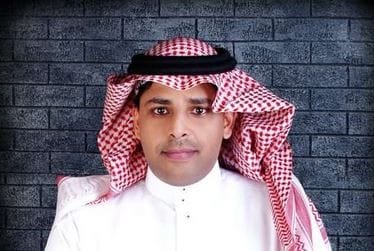In his December 28, 2020 column in the Saudi daily Al-Watan, liberal journalist 'Ali Al-Sharimi proposed ways to prevent young people from being recruited by extremist organizations like ISIS. The primary need, he said, is to reform the curricula, especially in the field of religious studies, which currently offer no ideological protection and in fact radicalize the youth and turn them into potential recruits for terror organizations. Al-Sharimi suggested, inter alia, to reexamine the concept of jihad in these curricula; instill values of religious pluralism, human rights and the nation state, and teach about all religions at all grade levels - so as to prevent dogmatism and violence and cultivate independent and critical thinking.

'Ali Al-Sharimi (image: Al-Watan, Saudi Arabia)
The following are excerpts from his column:[1]
"On December 22, 2020, Kuwait's national security apparatus arrested six teenagers who had been in contact with the ISIS terror organization. It turns out that the organization had enticed them to adopt its ideology, and some of them were even found to have weapons. Several computers seized from them contained correspondence and coordination with the terror organization. One of the teens admitted in his interrogation that a man had contacted him in the course of an [online] computer game… The question is, why does ISIS recruit teens?
"First, recruiting adults is harder than recruiting teens. Adults can only be brainwashed through intensive training, whereas young people are less resistant to radical ideologies. It is easier to accustom them to seeing various kinds of murder and executions and [also] easier turn them into human bombs, especially since they do not arouse suspicion. Second, the Gulf and Arab efforts have managed to crush ISIS, and after so many losses [the organization] was forced to recruit teens.
"An efficient [way to combat this phenomenon] is to establish a Gulf council for fighting extremism and terror, which will be associated with independent national councils for fighting extremism and terror in each country. [These councils must] include experts in the fields of human rights and education, as well as experts from the military, governmental and non-governmental sectors, who will all work together to eradicate terror in the Gulf.
"[But] most important is to [establish] councils for supporting the family [framework] in the Gulf, because ISIS activists take advantage of the disintegration of the family that is caused by social media, and invade this vacuum… Studies and statistics indicate that the absence of educational security in childhood is one of the major factors that [contribute] to the emergence of extremist people, who are strategic [targets] of the terror organizations.
"In addition, the Gulf education ministries and their various apparatuses must now reexamine the religious curricula and purge them of all inappropriate [content] that contravenes the values of human rights, which Islam champions. An example is the religious extremism that is manifest in distorting the tenets [of the faith], emptying religious rulings of their content and straying from the [real] goals of the religion. Another example of inappropriate content is hatred towards other religions or religious schools. The term 'jihad' must [also] be reassessed and examined in a new light. [Our] jihad should be against backwardness and ignorance, and consequently, I think that the idea of religious pluralism must be instilled in the minds of the citizens, for absolutist religion is the main reason for the emergence of a social climate of extremism and violence. It is also important to teach [general] knowledge and art, at all grade levels, including the history of religions and the comparative [study of] religious schools, as a way of cultivating an independent and critical personality that is not swayed by any kind of preaching.
"[Even] more important is to include in the curricula [principles] of citizenship and human rights, and instill a sense of belonging to the nation state… for only the state can provide general security, based on the assumption that civil behavior is based on laws that apply to everyone, regardless of [skin] color, race, place [of origin] or faith."
[1] Al-Watan (Saudi Arabia), December 28, 2020.




